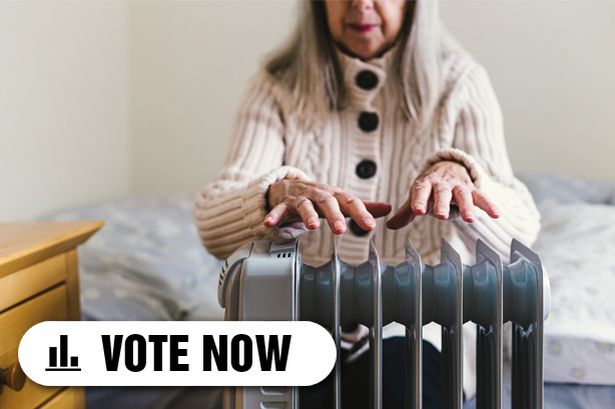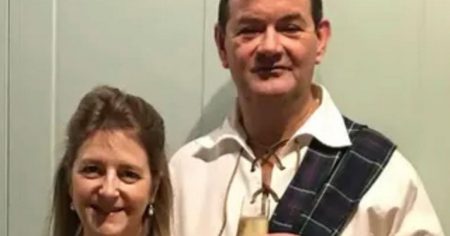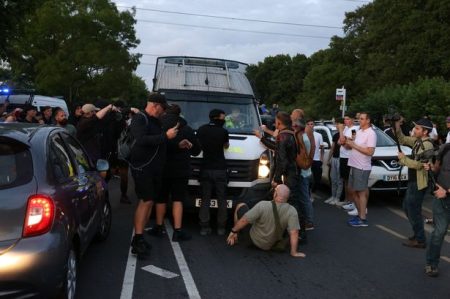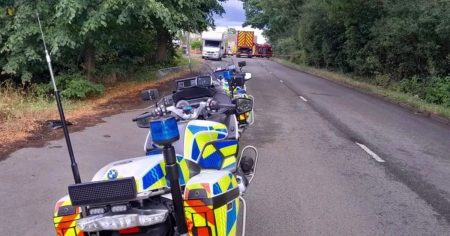The Cold Weather Payment, a government initiative designed to provide financial assistance to vulnerable households during periods of exceptionally cold weather, has been thrust into the spotlight amid a confluence of plummeting temperatures and escalating energy costs. Set at a fixed rate of £25 per seven-day period of freezing weather, the payment aims to alleviate the burden of heating expenses for low-income families, pensioners, and individuals receiving certain benefits. However, with energy bills reaching unprecedented levels and the cost of living continuing to rise, questions are being raised about the adequacy of this support, particularly in the face of prolonged cold snaps and the increasingly difficult choices many are facing between heating and eating. The debate centers on whether £25 is sufficient to offset the significant financial strain of rising energy bills, and whether the existing criteria for eligibility adequately capture the growing number of households struggling with fuel poverty.
The current Cold Weather Payment scheme operates on a trigger system, activated when the average temperature in a specific area is recorded at, or is forecast to be, 0°C or below for seven consecutive days. Eligible recipients, including those receiving benefits such as Pension Credit, Income Support, income-based Jobseeker’s Allowance, income-related Employment and Support Allowance, and Universal Credit, automatically receive the payment within 14 working days of the cold snap. While the automatic nature of the payment is lauded for its simplicity and efficiency, concerns persist that the fixed sum of £25, unchanged for several years, fails to reflect the escalating costs of heating homes, particularly amidst the ongoing energy crisis. The inadequacy of the payment is further exacerbated by the limited duration of the support, with households only receiving the payment for each distinct seven-day period of freezing weather, irrespective of whether the cold spell persists beyond this timeframe.
The rising cost of living, driven by inflationary pressures and soaring energy prices, has placed immense financial strain on households across the country. For those on low incomes and fixed incomes, the burden is particularly acute, forcing many to make difficult choices between essential expenses like heating, food, and medication. The Cold Weather Payment, intended as a safety net against the harshest winter conditions, is increasingly perceived as insufficient to mitigate the impact of rising energy costs. Critics argue that the fixed sum of £25 fails to recognize the varying heating needs of different households, particularly those living in poorly insulated homes or with larger families, and is insufficient to address the substantial increases in energy bills witnessed in recent months. This has sparked calls for a review of the payment amount, urging the government to increase the sum to reflect the current economic realities and provide more meaningful support to those struggling to afford adequate heating.
Furthermore, the eligibility criteria for the Cold Weather Payment have come under scrutiny. While the payment targets those receiving specific benefits, concerns have been raised that it fails to capture a significant portion of the population experiencing fuel poverty, including working families on low incomes and those just above the benefit threshold. The current system, based on benefit entitlement, does not account for the broader economic context, leaving many struggling with energy bills without access to this vital support. The reliance on a localized temperature trigger also creates discrepancies in access to the payment, with some areas experiencing prolonged periods of freezing weather while others, located in slightly warmer regions, miss out despite facing similar financial pressures. This geographical disparity raises concerns about equity and fairness within the scheme, prompting calls for a more nuanced approach that considers both temperature and the financial vulnerability of households.
The limitations of the current Cold Weather Payment scheme highlight the urgent need for a comprehensive review of government support for vulnerable households facing rising energy costs. While the payment provides a degree of assistance, its fixed sum and limited eligibility criteria fail to address the scale of the challenge. A more robust and responsive system is needed, one that considers the evolving energy landscape and the diverse needs of those struggling to afford adequate heating. This could involve indexing the payment amount to inflation, broadening the eligibility criteria to encompass a wider range of low-income households, and exploring alternative mechanisms for delivering support, such as direct discounts on energy bills or targeted grants for home insulation improvements.
Ultimately, ensuring that everyone can afford to heat their homes during the winter months requires a multifaceted approach that goes beyond the current Cold Weather Payment scheme. Addressing the root causes of fuel poverty, including inadequate housing insulation and low incomes, is crucial. Investment in energy efficiency measures, alongside targeted financial support, can provide a more sustainable solution, reducing energy consumption while ensuring that vulnerable households are protected from the harshest impacts of rising energy prices. The current debate surrounding the Cold Weather Payment serves as a stark reminder of the challenges faced by many and underscores the need for a more comprehensive and compassionate approach to tackling fuel poverty.














